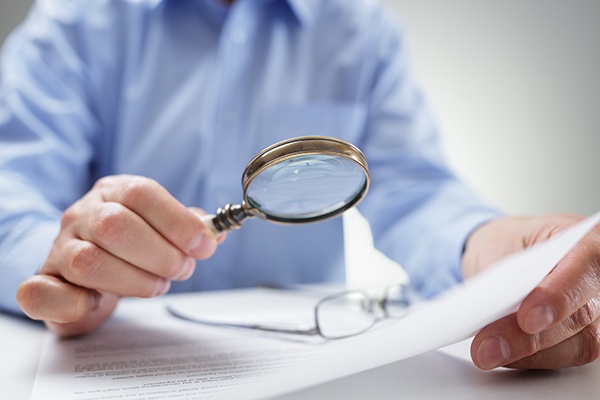
The commercial lease audit can be a powerful tool to reduce your company's total occupancy cost. However, audits are time-consuming and potentially expensive and too many of them can sour relationships with landlords. As such, it's best to do an audit when it is likely to yield real benefits for you.
Understanding the Commercial Lease Audit
Many commercial leases have language that allows you to request a review of what you are being charged to ensure that it exactly matches what the lease and supporting documents say. Leases are extremely complicated documents, and it can be easy to make honest mistakes when calculating your liabilities under them. Given that many of them include clauses that require you to reimburse your share of building expenses and that there can be room for debate as to how to define your fair share or to how to define the expenses that you must repay, you can see how errors can be easy to make.
Typically, your lease will give you permission to request an audit. That audit is performed by a third-party company or by some other party that is acceptable to your landlord and to you. Usually, if the audit finds a discrepancy in the landlord's favor, the landlord will pay for the audit and refund the overcharges. However, if the audit find a discrepancy in your favor or no meaningful discrepancy at all, you could end up paying for any errors in your favor and for the audit.
Preparing to Audit
Before commencing on a a commercial lease audit campaign, step back and do a little bit of your own auditing. Instead of just submitting every lease that you can, look for candidates that are likely to have errors and prioritize them. Here are some things that you can look for:
-
Leases where your occupancy costs are higher than projected.
-
Leases with very complicated reimbursement clauses, rent escalation clauses or both.
-
Leases in buildings that have experienced shifts in occupancy and where you are responsible for paying your share of common building expenses.
-
Leases with landlords or managers that have a history of making errors in lease calculations.
Once you have found the "low hanging fruit" in your company's portfolio, you can then look at other leases. Typically, you will be best served to focus on larger leases and leases where you are absolutely sure that you are not benefiting from a landlord's error in your favor.
Doing the Commercial Lease Audit
Once you've gotten ready to get started, review your lease one more time to ensure that you understand your rights to a commercial lease audit. If you have the rights, inform the landlord of your intention to audit and find a suitable auditor. Realize that, along the way, you will have to comply with the other terms of your lease which may involve agreeing to keep the results of the audit confidential and agreeing to pay for the audit if it does not yield significant findings. Once it is done, seriously consider auditing other leases with that landlord.
Done strategically, the commercial lease audit is an excellent tool to help you control occupancy costs. Furthermore, if landlords that work with you know that you audit regularly, they are more likely to get their calculations right the first time, as well.
Other great articles to check out:
Tips for Commercial Site Selection
5 Ways to Optimize Your CRE Portfolio
The Importance of the Commercial Lease Audit
Subscribe to our blog for great CRE tips!!








